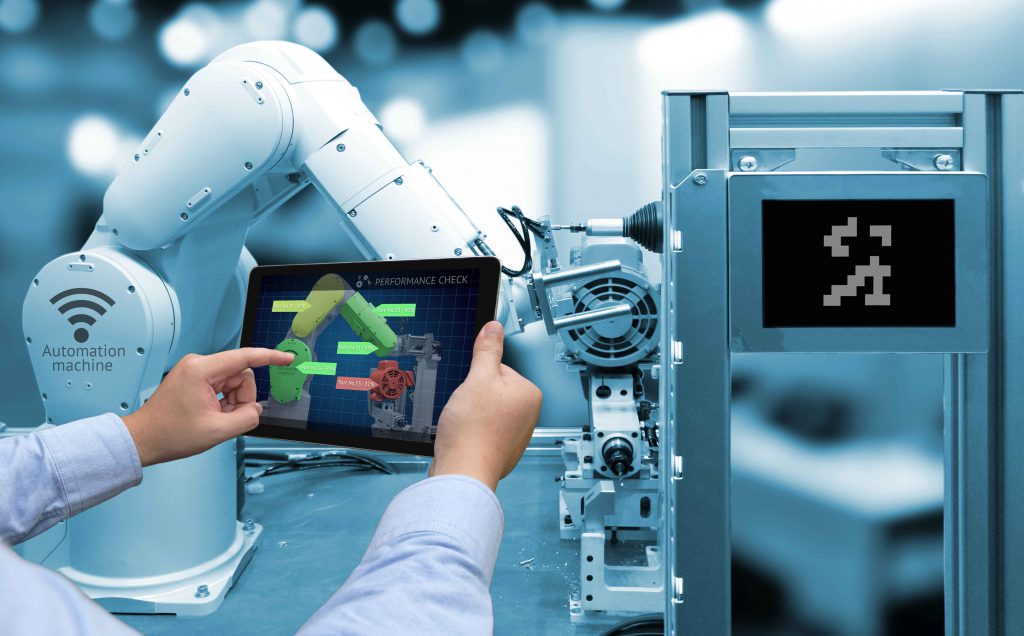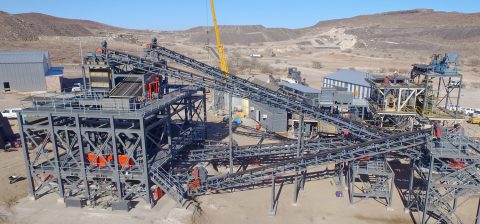Financial Mail Office
4IR In The Office
The fourth Industrial Revolution isn’t called a revolution for no reason — it is changing everything. And the humble workplace is no exception. Automation and artificial intelligence (AI) aren’t only used to change the way employees’ work — it’s also changing the way companies manage employees themselves.
AI is already changing the employee recruitment process. Algorithms and automation can save hundreds of hours of screening CVs to identify potential candidates for job positions. Experts beliveve that AI could ultimately remove human bias from the recruitment process. Early tests, however, haven’t impressed. Last year Amazon scrapped a recruitment AI programme when it discovered that it was still rating female candidates lower than males.
More positively, while many of us are familiar with chatbots for customers services already, similar systems are also being deployed at corporates with large HR departments for on-boarding new employees and introducing them to the company. Furthermore, chatbots can even be used to free up HR professionals from answering the same questions repeatedly. “Recent advancements in the field of artificial intelligence (AI) have really pushed the possibilities of what can be achieved with machines,” says Rudeon Snell, Leonardo Leader at SAP Africa.
Smart office equipment
Internet of things (IoT) technology not only changes the nature of office work, but also the office building itself. This is especially true when it comes to making sure the building uses resources more efficiently.
Intelligent systems can reduce energy usage – switching off the lights in unoccupied rooms, switching off climate-control systems when the ambient temperature is comfortable, and identifying energy drains within the office network. Some advanced applications even include building access control using facial recognition.
While South African workplaces haven’t yet integrated these solutions to the same extent as some global peers, the capacity is there. Local companies have also made significant progress in implementing these solutions. “The great advantage of operating in a global economy is the access to tools, solutions and experiences that are available to anyone, anywhere,” says Snell.
However, this requires strategic thinking from companies. Snell notes that business value should lead the process. “With the advent of AI, African companies have the chance to leapfrog their global counterparts, leading the way to global prosperity.
What about people?
But where does this leave employees? Many of the applications of automation, AI and IoT in the office are about making work more efficient, raising fears among some that many traditional roles will become redundant. This doesn’t necessarily mean replacing employees, but rather augmenting their work through technological solutions.
Freeing employees up from repetitive, time-consuming work means that they can focus on tasks that require creative thinking. They can also be trained in new skills, particularly those that enhance the customer experience.
Towards the end of 2018, researchers from the IBM Institute for Business Value surveyed 5 000 executives from around the world to understand how AI is being used in the workplace. What they found was that AI is being used to improve customer service and drive growth, with cutting costs lower down on the list of drivers for adoption. “Operational cost reduction is important, but we certainly saw a reinforcement on top-line numbers being the most important aspect,” explains report co-author Brian Goehring.
What’s more, says Aadil Patel, Director for Employment Law at Cliffe Dekker Hofmeyr, while new technologies have traditionally been perceived as putting younger employees at an advantage, 4IR technologies could in fact be good for older workers too. “Leading-edge employers are starting to think about creating alternative career routes for older workers that feature more flexible assignments and schedules, creating opportunities for them to mentor younger workers and contributing to a revolution which no one fully understands,” he explains.
“The Fourth Industrial Revolution will allow older employees to continue working beyond their normal retirement so as to offer their experience, humanity, judgement and knowledge within their areas of expertise, which could not easily be replaced,” concludes Patel.






 Sign-up and receive the Business Media MAGS newsletter OR SA Mining newsletter straight to your inbox.
Sign-up and receive the Business Media MAGS newsletter OR SA Mining newsletter straight to your inbox.